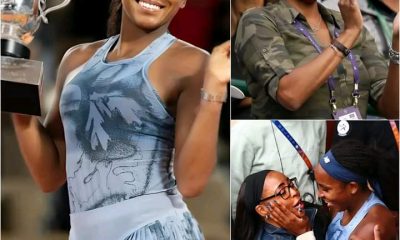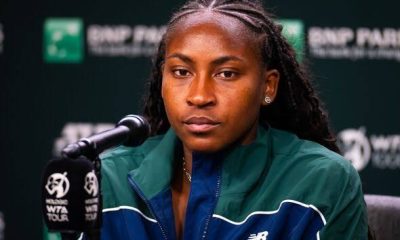Emma Ruducanu
JUST IN: Emma Raducanu Begs Andy Murray for forgiveness and Appoints Him as Her New Manager Admid Controversies On…
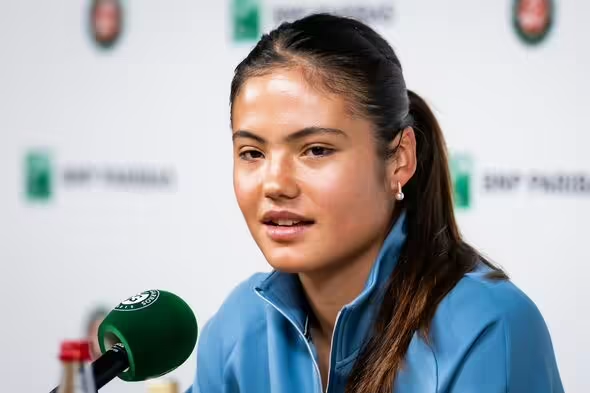
Emma Raducanu Seeks Forgiveness from Andy Murray Amidst Wimbledon Controversy
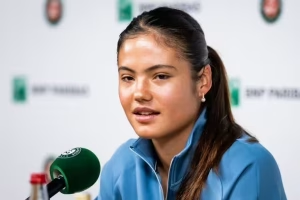
Introduction
In a surprising turn of events, British tennis star Emma Raducanu has publicly sought forgiveness from fellow compatriot and tennis legend Andy Murray following a controversial incident at Wimbledon.
The young athlete’s heartfelt appeal has stirred conversations in the tennis community, highlighting the complexities of professional relationships and the pressures faced by athletes on the global stage.
The Wimbledon Controversy
The controversy began during the 2024 Wimbledon Championships when Raducanu withdrew from a highly anticipated mixed doubles match with Murray, citing wrist stiffness.
This decision effectively ended Murray’s hopes of a final appearance at the All England Club, leading to widespread disappointment among fans and commentators.
Raducanu’s withdrawal was met with criticism, including a sarcastic remark from Murray’s mother, Judy, on social media.
The incident sparked debates about commitment, professionalism, and the responsibilities of athletes towards their partners and the sport.
Raducanu’s Public Apology
In a recent interview, Raducanu opened up about the incident, expressing deep regret over the situation.
“Afterwards I sent him [Andy Murray] a long message basically apologising if I caused any trouble,” she stated.
“He’s someone that I’ve grown up looking up to, and I don’t want any bad blood or harsh feelings with him.”
Raducanu emphasized that her decision to withdraw was not taken lightly and was based on medical advice to prevent further injury.
She acknowledged the impact of her actions on Murray’s final Wimbledon appearance and conveyed her sincere apologies.
Murray’s Response
Andy Murray, known for his sportsmanship and mentorship, responded graciously to Raducanu’s apology.
He expressed understanding of her situation and emphasized the importance of health and well-being in professional sports.
Murray’s response has been praised for its maturity and empathy, reinforcing his status as a respected figure in the tennis world.
The Aftermath and Moving Forward
The incident has prompted discussions about the dynamics of professional partnerships in sports and the pressures faced by young athletes.
Raducanu’s candidness and willingness to address the controversy head-on have been commended, showcasing her growth and maturity.
While the incident was unfortunate, it has also opened avenues for dialogue and learning.
Both Raducanu and Murray have demonstrated professionalism and grace in handling the situation, setting an example for others in the sport.
Conclusion
Emma Raducanu’s public appeal for forgiveness from Andy Murray highlights the challenges and complexities of professional sports.
Her sincerity and Murray’s gracious response underscore the importance of communication, understanding, and mutual respect in the athletic community.
As both athletes continue their respective journeys, this incident serves as a reminder of the human aspects behind the competitive world of sports.

-

 Liverpool News5 months ago
Liverpool News5 months ago“He Spoke To Me”: Trent Alexander-Arnold breaks Silence on Real Madrid Snub and Finally Reveal The Reason Why He’s Staying at Liverpool After an Advice From….
-
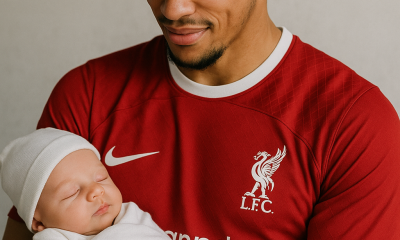
 Liverpool News6 months ago
Liverpool News6 months ago5 Minutes AGO: A Poor Newborn Baby Was Abandoned in a Park Near His Home After The Leicester City Game, in Response To This Heartbreaking Situation, Star Trent Alexander Arnold Stepped In to Become The Child’s Guardian, Pledging To Pay All Living Expenses Until The Child Turns 18….
-

 Liverpool News6 months ago
Liverpool News6 months agoBREAKING NEWS: live from Fabrizio romano, “LET ME GO” Liverpool target set to hand in transfer request to join Liverpool with immediate effect. He said, “I’ve made it clear to the club—I want to leave. The moment I heard Liverpool were interested, my mind was made up. This is a club you don’t say NO to, and I won’t risk waiting around. This is my career, my future, and I’m taking control of it. I’m handing in a transfer request because I want to wear that red shirt. Let me go—this isn’t a request, it’s a warning. My decision is final. It’s Liverpool or nothing.” Yes this is the kind of players we want who want to play for the club and not for the money get him for us immediately the fans are celebrating….
-

 Liverpool News6 months ago
Liverpool News6 months ago“He visited my office yesterday to inform me about his decision to return to the Anfield this summer. I am not only disappointed in him, but I will also report Liverpool to FIFA for attempting to deceive us.” His return to Liverpool by the summer has been confirmed, but a major issue remains unresolved. HAVING NETTED 15 GOALS IN 6 MATCHES THE MONACO COACH IS DISAPPOINTED IN HIM RETURNING TO LIVERPOOL…..
-

 Featured3 months ago
Featured3 months ago🚨𝐄𝐒𝐂𝐋𝐔𝐒𝐈𝐕𝐀: ARDON JASHARI SARÀ UN NUOVO GIOCATORE DEL MILAN! 🚨 ✅ Accordo totale tra Club Brugge e AC Milan per Ardon Jashari! 🔴⚫️ Il trasferimento si chiuderà su una cifra tra i 37 e i 40 milioni di euro, inclusi bonus, oltre a una percentuale sulla futura rivendita. 💼 Contratto fino almeno al 2030, con stipendio stimato tra 2 e 3,5 milioni a stagione 📝 🔥 Ardon Jashari sarà rossonero. Un colpo chiave per il centrocampo del Milan ✅🔴⚫️
-

 Liverpool News6 months ago
Liverpool News6 months agoIT’S FINALLY OFFICIAL:Trent Alexander-Arnold signs a new long-term contract with Liverpool Amid Motivational Goal Scored Against Leicester City, keeping him at the club until 2028….
-

 Featured3 months ago
Featured3 months ago🚨 ULTIM’ORA: CAOS IN SERIE A – La Roma starebbe elaborando un piano terrificante e minaccioso per strappare il difensore brasiliano alla Juventus, ma Tudor ha lanciato un avvertimento chiaro e diretto al club giallorosso, secondo quanto riportano alcune fonti…
-

 Liverpool News6 months ago
Liverpool News6 months agoBREAKING NEWS: Arne Slot Makes Surprise Statement On Trent Alexander-Arnold’s Remaining Games for Liverpool After What Transpired On…


